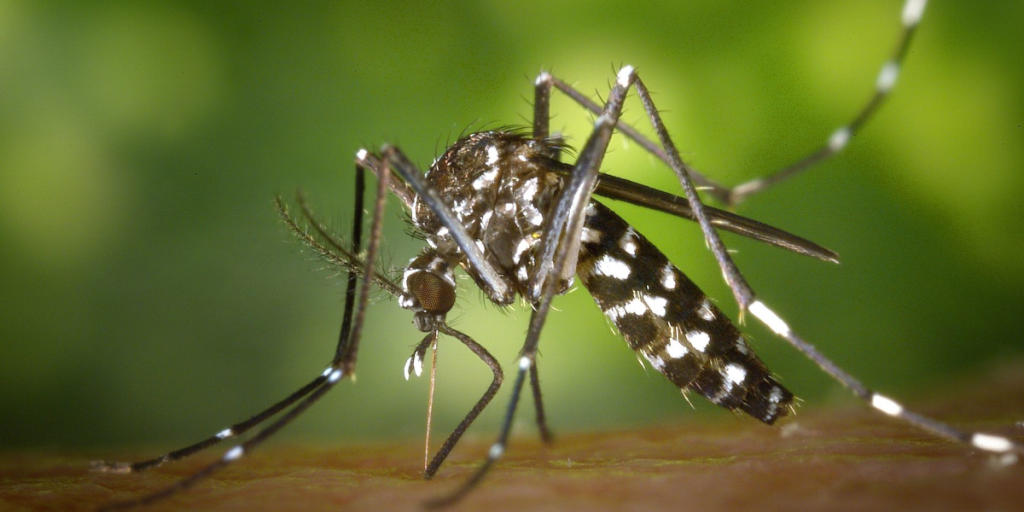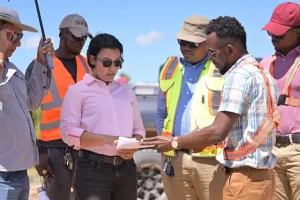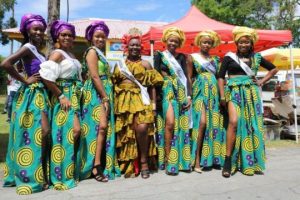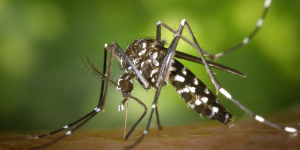Dengue Cases Surge in Guyana, Prompting Action and Awareness

In recent times, Guyana has found itself grappling with a growing concern – a surge in dengue cases. As the year unfolds, the country has reported a staggering total of 2,169 confirmed dengue cases, resulting in the unfortunate loss of 11 lives. In response to this escalating situation, the Ministry of Health has taken proactive measures, including the establishment of a technical working group (TWG), to tackle the challenge head-on.
Dengue, an acute febrile disease caused by the dengue virus transmitted via Aedes mosquitoes, has proven to be endemic not just to Guyana, but also to the broader region of the Americas. This cyclical increase in cases can be attributed to a combination of factors, including seasonal changes and climatic conditions.
Zooming out to the larger picture, the Americas region as a whole has witnessed a significant uptick in dengue cases over the past months. Astonishingly, the statistics paint a vivid picture – from January to June 2023 alone, a staggering 2,102,848 cases have been recorded, with a distressing 876 associated deaths. The nations most impacted within this region include Brazil, Peru, and Bolivia.
Dengue is a complex adversary, existing in four serotypes known as DENV 1-4. Each serotype holds the potential to cause an infection. What’s more, a subsequent infection with a different serotype can lead to a more severe form of the disease. Symptoms of dengue encompass fever, eye pain, muscle and joint pain, skin rash, headache, and a general sense of weakness. In severe cases, referred to as hemorrhagic dengue, complications involving bleeding and clotting disorders can manifest.
In light of these developments, the Ministry of Health, under the leadership of Dr. Frank Anthony, has sprung into action by activating the TWG. This group’s primary objective is to evaluate, propose, and execute strategies aimed at mitigating the spread of dengue. The arsenal of measures proposed by the TWG includes intensive public awareness campaigns emphasizing environmental cleanliness and the adoption of hygienic practices.
To curtail transmission, a series of environmental and entomological measures have been heightened across Guyana. These include fogging (fumigation), residual spraying, home inspections, and the distribution of larvicidal chemicals through Neighbourhood Democratic Councils (NDCs). Notably, many regions have commenced a second cycle of fogging to combat the situation.
A critical aspect of managing dengue lies in its diagnosis. Consequently, the Ministry of Health has amplified the procurement and distribution of rapid diagnostic test kits, laboratory supplies, and equipment. This proactive step aims to enhance the nation’s diagnostic capacity and facilitate timely interventions.
It’s important to note that dengue, as of now, has no cure. In this context, the focus shifts to symptomatic treatment, which aligns with revised national treatment guidelines. The TWG will continue to monitor the epidemiological landscape and the efficacy of the measures put in place.
In the battle against dengue, every individual plays a pivotal role. The Ministry of Health urges all Guyanese citizens to engage in source reduction, a process that involves eliminating mosquito breeding sites. This includes thorough inspections of everyday items such as bottles, buckets, and old tires. By collectively adopting these measures, the country can strive towards a safer, healthier future.
The surge in dengue cases has prompted swift and coordinated action from the Guyanese authorities. With an unwavering focus on public awareness, environmental management, and enhanced diagnostics, the nation is working tirelessly to stem the tide of this concerning outbreak. As citizens, our vigilance and responsible actions can undoubtedly make a substantial impact on curbing the transmission of this disease.





